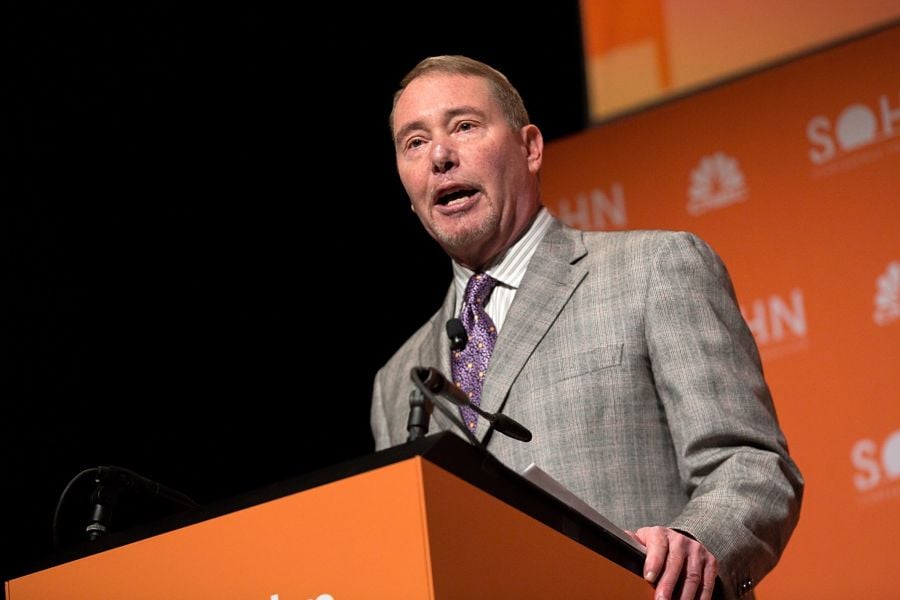

The S&P 500 Index is likely to surpass its March lows in April as economic uncertainty further riles investors, according to bond manager Jeffrey Gundlach.
“I think we’re going to get something that resembles that panicky feeling again during the month of April,” Gundlach, chief investment officer for DoubleLine Capital, said Tuesday during a webcast on the market and economic impact of the coronavirus pandemic.
The S&P 500 fell 12.5% in March, its worst monthly performance since October 2008. The gauge’s decline ended the longest bull market in history.
The U.S. is likely to follow Japan, Europe and emerging economy stock markets that haven’t rebounded to highs reached more than a decade ago, according to Gundlach.
“It won’t be back to where it was prior for a long time to come,” he said, “particularly on a real basis.”
Gundlach also said that it will take time — and sacrifice — for the U.S. economy to eventually grow stronger.
“We will get back to a better place, but it’s just not going to bounce back in a V-shape back to January of 2020,” he said.
Among his other comments:
• Projections by major banks that the U.S. economy will quickly recover from the coming recession are too optimistic.
• The current economy resembles a “depression.”
• The U.S.’s economic and monetary stimulus will likely reach $10 trillion.
• Unemployment will rise to 10%.
• The dollar is likely to weaken.
In his prior webcast on March 17, Gundlach said there may be a 90% chance of a U.S. recession this year, the national debt could grow to $30 trillion in two to three years and investors should prepare for “en masse” corporate debt defaults and downgrades. He later attacked government bailouts as plans to backstop “greed and mismanagement,” according to a March 19 Twitter post.
The $51 billion DoubleLine Total Return Bond Fund, Gundlach’s mortgage-focused flagship fund, lost 1.3% this year through Monday and returned an annual average of 2.6% over five years.

While industry statistics pointing to a succession crisis can cause alarm, advisor-owners should be free to consider a middle path between staying solo and catching the surging wave of M&A.

New joint research by T. Rowe Price, MIT, and Stanford University finds more diverse asset allocations among older participants.

With its asset pipeline bursting past $13 billion, Farther is looking to build more momentum with three new managing directors.

A Department of Labor proposal to scrap a regulatory provision under ERISA could create uncertainty for fiduciaries, the trade association argues.

"We continue to feel confident about our ability to capture 90%," LPL CEO Rich Steinmeier told analysts during the firm's 2nd quarter earnings call.
Orion's Tom Wilson on delivering coordinated, high-touch service in a world where returns alone no longer set you apart.
Barely a decade old, registered index-linked annuities have quickly surged in popularity, thanks to their unique blend of protection and growth potential—an appealing option for investors looking to chart a steadier course through today's choppy market waters, says Myles Lambert, Brighthouse Financial.
